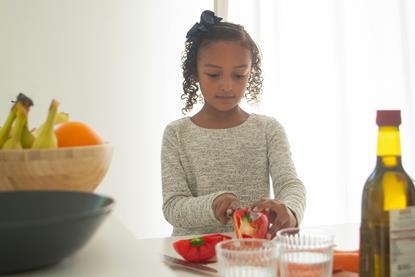Mental Health and well-being
Parenting brings joys and challenges and supporting our children’s mental and emotional well-being is more important than ever. In this section, you’ll find Christian reflections, expert insights, and practical guidance on topics like anxiety, depression, stress, and resilience — for both you and your children. These articles aim to help you nurture emotional health within a faith-filled home.
Why this Christian dad welcomes the social media ban for under 16s
As the UK considers whether or not to follow the lead of the Australian government and ban social media for under 16s, two Australians share their thoughts. Jono Stanton is a 21-year-old musician and is not convinced that government bans can work well - however, in this article Graham Stanton, a leading youth ministry researcher and trainer, and Jono’s dad, explains why he is hopeful the new laws will be effective
How Christian parents can help young people navigate Christmas stress
Christmas is supposed to be a time of joy, but for many young people it brings added stresses - Rachael Newham analyses the problem and suggests some ways Christian parents can respond
4 ideas for Christian parents feeling low as the days get darker
As the nights draw in, we can want to hibernate and wake up in spring - Dawn Kay suggest 4 ways to keep going if it feels tough this autumn
3 ways Christian parents can take the lead on healthy smartphone use in their family
To combat the negative impact of smartphone use Sandeep Louise encourages parents to set the example for their youth and children to follow
Responding to suicidal thoughts with hope - thoughts for Christian parents
As World Suicide Prevention Day approaches Rachael Newham helps Christian parents think about creating cultures of hope
How Christian parents can boost the well-being of their children through the food they eat
Cancer Research UK has just released research tracking junk food advertising on young people’s social media feeds. In addition to the negative physical health implications of junk food, Nate Jones from the Ugly Duckling Company considers the impact on the mental and spiritual health of children and young people
Summer glow-up or comparison burnout: The perfection trap for young people
In summertime, social media floods with images of ‘glow-ups’, smoothie cleanses, intense workouts, miracle beauty products, and wellness routines promising an idealised version of health and happiness. At first glance, setting a goal of becoming healthier and happier seems harmless. But scratch beneath the surface, and you’ll quickly see that the wellness industry, far from being about well-being, is a multi-billion-pound machine built on selling us the promise of improvement while profiting off our insecurities. The cost of buying into this cycle, financially, emotionally, and mentally, is significant, and it’s time we ask: who’s really ……
Addicted, anxious and online: What every Christian parent needs to know about social media and wellbeing
When 15-year-old Anna decides to embark on a fitness regime, she soon discovers social-media posts offering nutrition advice. Embracing her new healthy lifestyle enthusiastically, she begins sharing her progress online. Within weeks, she finds herself scrolling through dieting regimens. As well as working out at the gym, she begins limiting her food intake. Her social media use quickly spirals from anorexia and bulimia sites onto pages promoting self-harm.
This Mental Health Awareness week, Christian parents can turn to the Bible for help with the well-being of their children
As Christian parents, we’re probably used to wanting to find out what the Bible has to say about the issues facing us and our families. We want to use scripture to help us navigate the world, and whilst sometimes we can easily see what the Bible has to say on a topic (there is an abundance of wisdom on navigating conflict well, for example), at other times it can be a little trickier.
Finding peace after loss: Trusting God while supporting your child’s grief
Grief is one of the most challenging experiences that we endure in life. Whether it arrives suddenly or evolves over time, nothing fully prepares you for the plethora of emotions that it brings. When my father passed away last year, the grief was overwhelming. Though I continue to hold on to my faith, there are days when the weight of his absence feels unbearable, and the notion of ‘healing’ seems distant.
Sweet dreams - Sleep is foundational for the mental and spiritual health of youth and children
I can remember as a child and teenager trying various tactics to push back my bedtime. It was like going to sleep was a bad thing and creating a battle or managing to get to bed later was somehow a worthwhile victory. As an adult I now enjoy getting a good night’s sleep – but occasionally there is a battle with myself to get off the sofa and make it happen.
Helping your teen navigate Snapchat: A Christian parent’s guide to helping them flourish online
In today’s digital world, social media is a big part of many teens’ lives. Snapchat, with its disappearing messages, fun filters, and real-time updates, is particularly popular among young people. While these features can offer entertainment and connection, they also bring risks that parents need to be aware of. As Christian parents, it can be challenging to help our teens navigate platforms like Snapchat while keeping them safe, grounded in faith, and aware of the potential dangers. This guide will help you find that balance.
It’s not all in the head - Physical activity is really important for the mental and spiritual health of youth and children
In 2024 there were 9.3 million NHS Couch to 5K runs started in the year as people sought to get healthy. I really enjoy physical activity but there are times (especially at the end of a busy day or if it is cold and dark) that dragging myself away from a comfy sofa is quite a challenge. However, one thing I do know is that being active is good for me and I always feel better having chosen to abandon the sofa for exercise.
Our children and young people need the good news not mere happy news
Rachael Newham considers whether we are passing on an emotional prosperity gospel and what a healthier approach might be.
Are smartphones rewiring my kid’s brain?
Robin Barfield wonders if Christian parents are sometimes a little too negative on the impact of smart phones and social media. For an alternative perspective click here.
The Anxious Generation by Jonathan Haidt might have an alarmist title but there is plenty in the book that Christian parents can agree with
Parenting is and has always been a challenge. Teenagers find ways to push boundaries. That’s been the story forever. But in the digital age, the world of smartphones, selfies, nudes, social media and AI, today’s teenagers face challenges that most of us didn’t have when we were growing up.
Childline’s tips on tackling loneliness are helpful. But Christians should go further.
This month Childline revealed that that they ran nearly 5,000 online or telephone counselling sessions with youth and children in 2023-24. There are lots of issues that worry youth and children but, in those sessions, the main concern was loneliness. This isn’t an outlying report. The Office for National Statistics said something similar about the same time period. Loneliness, it seems, is a big problem.
Why the real meaning of Advent matters and how you can encourage participation
Gareth Crispin suggests that you can get preparing for Advent now, and reap the benefits later









































